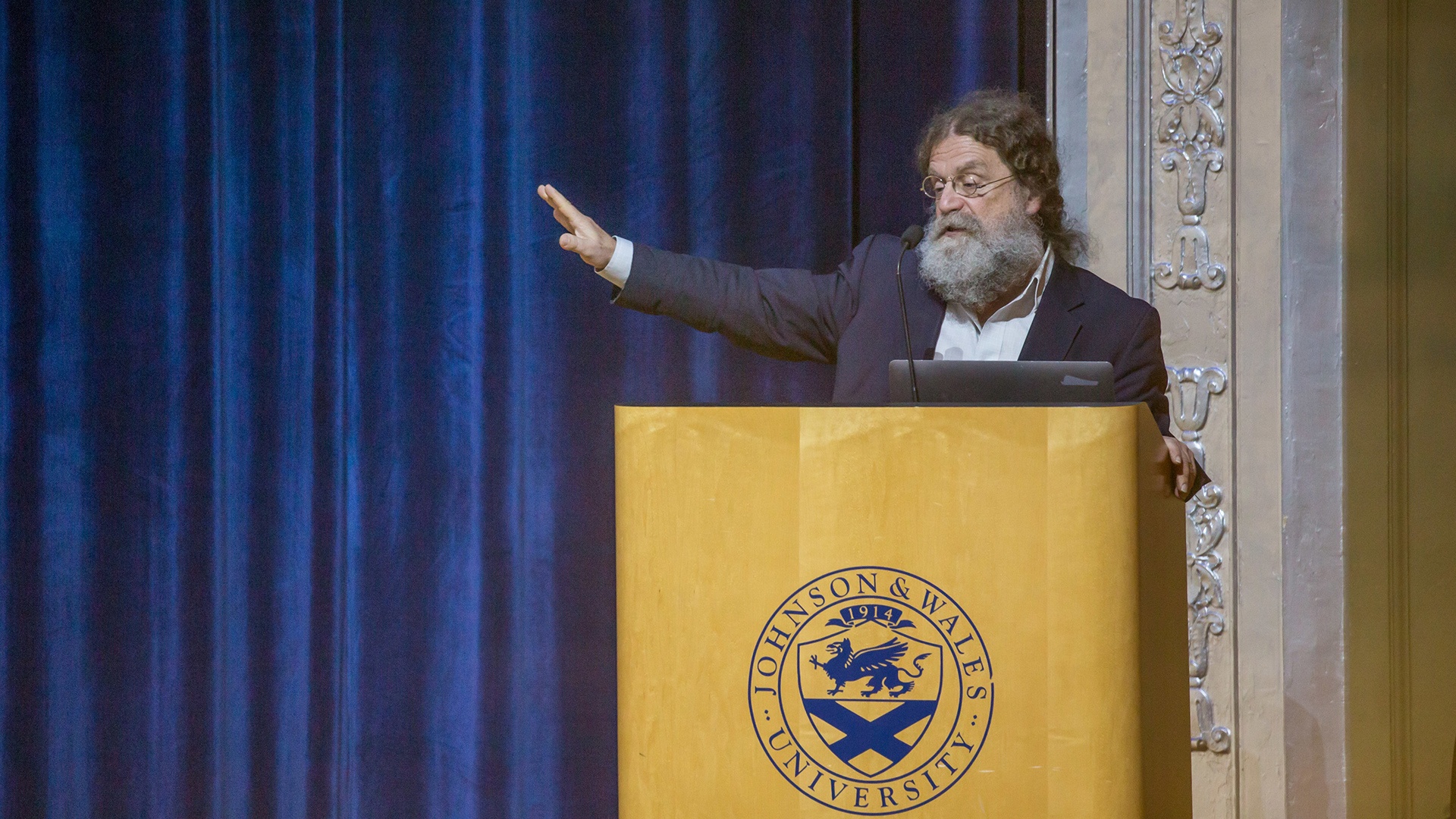Neurobiologist Robert Sapolsky: Unlocking The Mysteries Of The Mind And Behavior
Let’s be real here folks, you’ve probably heard the name Robert Sapolsky floating around if you’re into brain science or behavioral studies. But what’s the deal with this guy? Why’s he such a big deal? Well, buckle up because we’re diving deep into the world of one of the most fascinating neurobiologists of our time. Robert Sapolsky isn’t just some lab coat-wearing scientist; he’s a storyteller, a thinker, and a guy who makes the brain seem less like a mystery and more like a wild adventure waiting to be explored.
If you’re scratching your head right now wondering why anyone should care about neurobiology, let me break it down for ya. Understanding the brain isn’t just about knowing how neurons fire or what hormones do; it’s about figuring out why we humans act the way we do. And guess what? That’s exactly what Robert Sapolsky has spent his career doing. From baboon behavior to stress hormones, this guy’s got all the answers—or at least, he’s asking the right questions.
Now, before we dive into the nitty-gritty details, let’s just say this: if you’ve ever wondered why stress can make you feel like you’re losing your mind, or why some people seem to handle life’s chaos better than others, then you’re in the right place. Robert Sapolsky’s work isn’t just about science—it’s about life, and that’s why we’re here today to break it all down for you.
- Jackerman Video The Ultimate Guide To Mastering The Viral Sensation
- Luke Nichols Wikipedia A Deep Dive Into The Life And Legacy Of A True Star
Table of Contents
- Biography of Robert Sapolsky
- Early Life and Education
- Scientific Contributions in Neurobiology
- Breaking Down Stress Research
- Exploring Human and Animal Behaviors
- Public Outreach and Writing
- Books and Publications
- Famous Lectures and Talks
- Criticisms and Controversies
- The Legacy of Robert Sapolsky
Biography of Robert Sapolsky
Who is Robert Sapolsky?
Alright, let’s start with the basics. Robert Sapolsky is not just a guy with a cool name; he’s a Stanford professor, a neurobiologist, and an author who’s made waves in the world of science. Born in New York City in 1957, Sapolsky has spent decades studying the brain, stress, and behavior. His work isn’t just about lab experiments—it’s about connecting the dots between biology, psychology, and sociology.
But here’s the kicker: Sapolsky doesn’t just write for scientists. He writes for regular folks like you and me. His books and lectures are packed with humor, storytelling, and real-life examples that make science feel less intimidating and more relatable.
Early Life and Education
Now, let’s rewind a bit. Sapolsky didn’t wake up one day and decide to become a neurobiologist. His journey started way back in his childhood. Growing up in Queens, New York, he was always curious about animals and their behavior. This curiosity eventually led him to Harvard, where he earned his undergraduate degree in biological anthropology.
- Whats The Real Deal Behind The Upside Down Flag Meaning Lets Dive In
- Samantha Middleton Husband The Untold Story You Wonrsquot Believe
From there, Sapolsky moved on to earn his Ph.D. at Rockefeller University, where he focused on the effects of stress on the brain. And the rest, as they say, is history—or should we say, science history?
Scientific Contributions in Neurobiology
What Makes Sapolsky’s Work Stand Out?
Let’s talk about the meat and potatoes of Sapolsky’s career: his scientific contributions. One of his biggest claims to fame is his research on stress and its impact on the brain. Through years of studying baboons in Kenya, Sapolsky discovered that stress isn’t just about feeling overwhelmed—it’s a biological process that can have serious consequences for our health.
But wait, there’s more! Sapolsky’s work isn’t limited to baboons. He’s also explored how stress affects humans, from chronic illnesses to mental health disorders. His findings have been published in top-tier journals and have influenced countless scientists around the world.
Breaking Down Stress Research
Stress research is where Sapolsky really shines. He’s been called the “stress whisperer” for a reason. In simple terms, stress is our body’s response to challenges or threats. But what happens when stress becomes chronic? That’s where things get tricky.
- Chronic stress can lead to inflammation in the body.
- It can affect memory and cognitive function.
- It’s linked to conditions like depression and anxiety.
Sapolsky’s research has shown that stress isn’t just a mental issue—it’s a physical one too. And that’s why understanding it is so important.
Exploring Human and Animal Behaviors
Baboons, Humans, and Everything in Between
Here’s where things get really interesting. Sapolsky doesn’t just study the brain; he studies behavior. And not just human behavior—animal behavior too. His work with baboons in Kenya has provided valuable insights into how social hierarchies, relationships, and stress affect behavior.
But why does this matter for humans? Well, it turns out that many of the same principles apply. Whether you’re a baboon or a human, social status, stress, and relationships play a huge role in how you behave. Sapolsky’s research helps us understand why we act the way we do—and how we can change those behaviors for the better.
Public Outreach and Writing
Sapolsky isn’t just about publishing papers in scientific journals. He’s all about making science accessible to everyone. Through his books, lectures, and public appearances, he’s reached millions of people around the world. And let’s be honest, he’s got a knack for making even the most complex topics feel like a conversation over coffee.
His writing style is witty, engaging, and downright entertaining. If you’ve ever read one of his books, you’ll know exactly what I’m talking about. He’s got a way of breaking down complex ideas into bite-sized pieces that anyone can understand.
Books and Publications
Some Must-Reads from Sapolsky
Let’s talk books for a second. Sapolsky has written several bestsellers that have captivated readers worldwide. Here are a few you should check out:
- Why Zebras Don’t Get Ulcers: A deep dive into stress and its effects on the body.
- Behave: The Biology of Humans at Our Best and Worst: A comprehensive look at human behavior and what drives it.
- A Primate’s Memoir: A personal account of Sapolsky’s time studying baboons in Kenya.
These books aren’t just for science nerds—they’re for anyone who’s curious about the world around them.
Famous Lectures and Talks
Sapolsky’s lectures are legendary. Whether he’s speaking at Stanford or TED Talks, he has a way of captivating audiences with his humor, passion, and knowledge. One of his most famous lectures, “The Biology of Stress,” has been viewed millions of times online.
What makes his talks so special? It’s the way he connects with his audience. He doesn’t just throw facts at you—he tells stories, asks questions, and makes you think. If you haven’t seen one of his lectures yet, do yourself a favor and check one out.
Criticisms and Controversies
No one’s perfect, and Sapolsky’s not immune to criticism either. Some scientists have questioned his methods, especially when it comes to extrapolating animal behavior to humans. Others have pointed out that his work can sometimes oversimplify complex issues.
But here’s the thing: Sapolsky doesn’t shy away from criticism. He welcomes it. In fact, he sees it as an opportunity to refine his ideas and push the boundaries of science even further.
The Legacy of Robert Sapolsky
So, what’s the legacy of Robert Sapolsky? Well, it’s safe to say that he’s left an indelible mark on the world of science. His work has changed the way we think about stress, behavior, and the brain. And his efforts to make science accessible to everyone have inspired countless people to explore the world of science themselves.
As we look to the future, Sapolsky’s influence will continue to shape the field of neurobiology and beyond. Who knows? Maybe one day, we’ll all be as curious and passionate about science as he is.
Final Thoughts
Let’s wrap this up, folks. Robert Sapolsky isn’t just a scientist—he’s a storyteller, a thinker, and a guy who makes science feel less like a mystery and more like a wild adventure waiting to be explored. From his groundbreaking research on stress to his engaging public outreach, Sapolsky has made a lasting impact on the world of science.
So, what’s next? Well, that’s up to you. Whether you’re diving into one of his books, watching one of his lectures, or just thinking about the world a little differently, Sapolsky’s work is sure to leave a mark on you. And hey, if you liked this article, why not share it with a friend? Or leave a comment? Or both? The world of science is waiting for you—so go out there and explore!
Oh, and before you go, here’s a little bonus: if you’re curious about stress, behavior, or the brain, check out some of Sapolsky’s work. Trust me, you won’t regret it.
Data Sources: Stanford University, National Institutes of Health, TED Talks, Sapolsky’s Official Website.
- Seinfeld Height The Inside Scoop On Tvs Favorite Comedian
- Goggins Actor The Rise Of A Fitness Icon In Hollywood

Dr. Robert Sapolsky Teaching Methodologies Llacuna

Understanding Why We Do What We Do With Neuroscientist Robert Sapolsky

Understanding Why We Do What We Do With Neuroscientist Robert Sapolsky